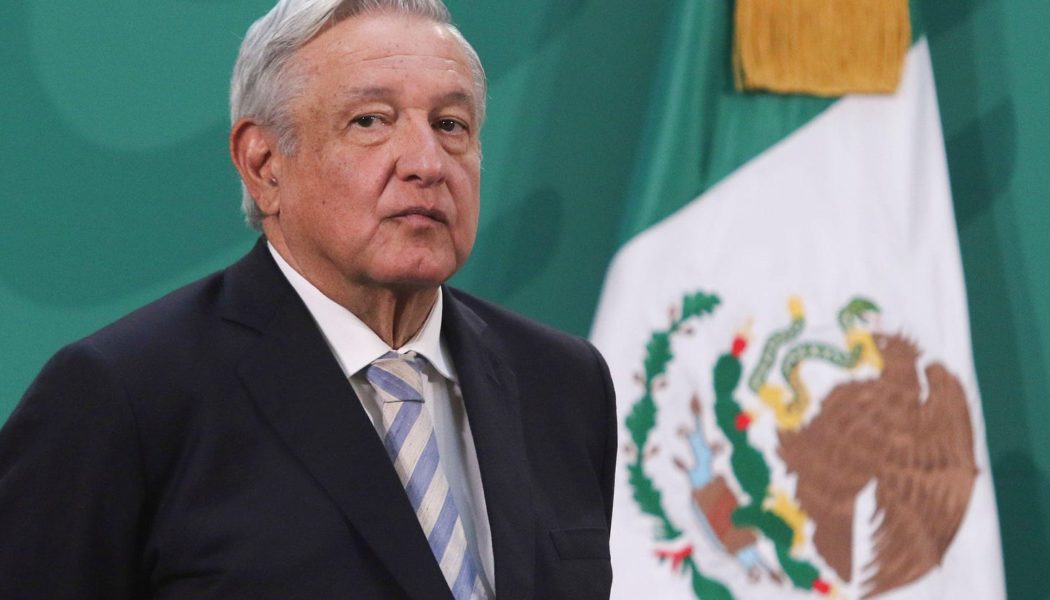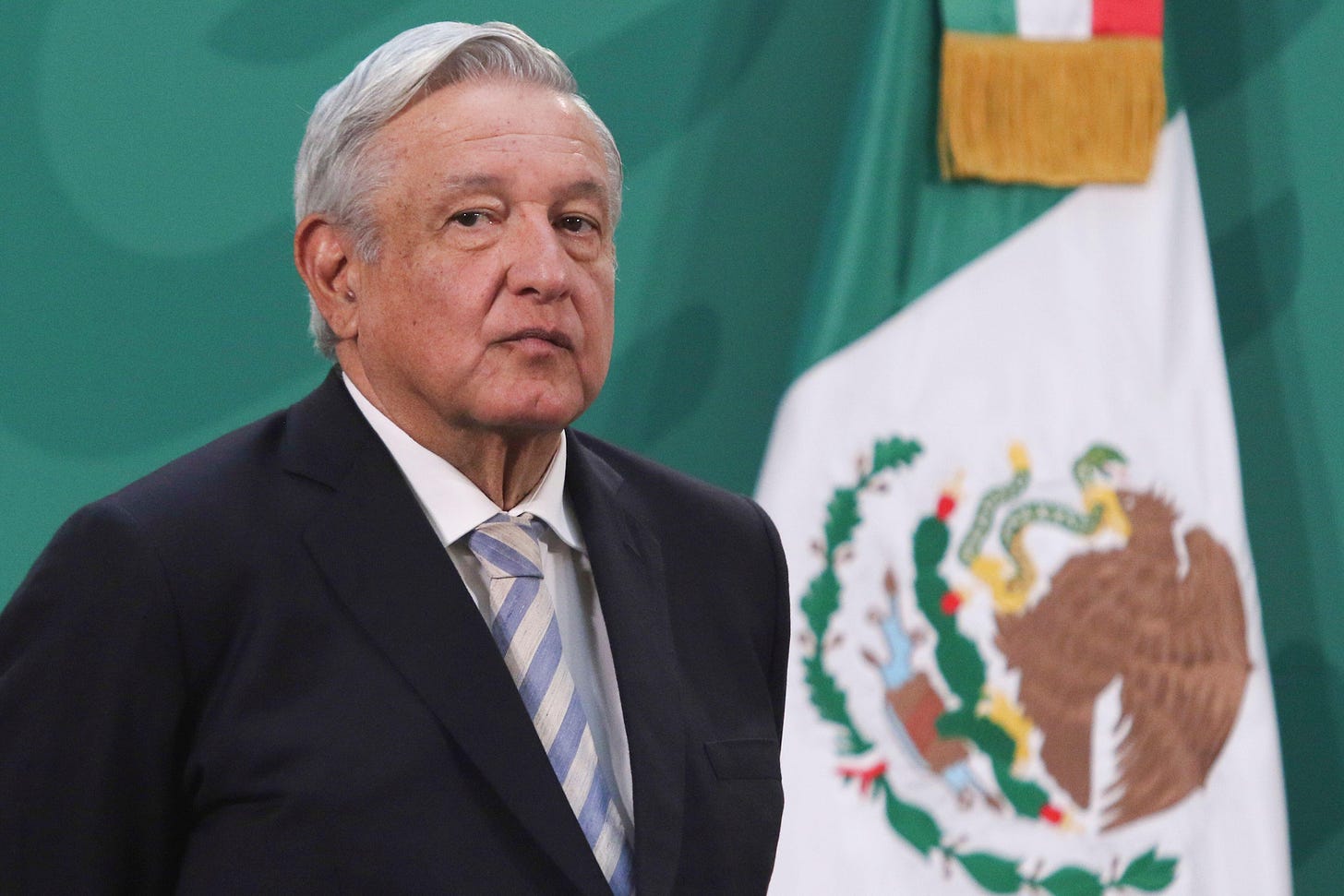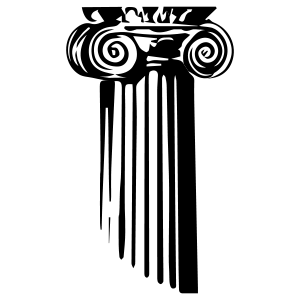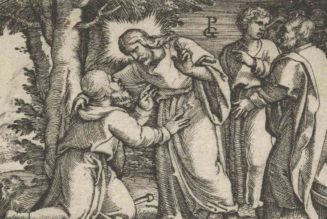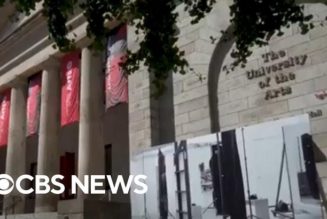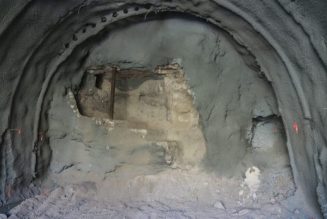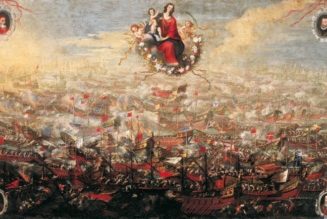Happy Friday friends,
It’s August. Large sections of Washington are flooded, the mosquitos are especially malarial, and I have fled to higher ground for the week.
When it comes to the Church, it is tempting to think that there isn’t much going on in the dog days of summer. But between papal trips and a consistory in Rome at the end of the month, the traditional summer recess is disappearing fast.
There’s certainly been news this week, and we’ve been keeping an eye on it for you. So let’s get to it, and then you can get back to what’s left of your vacation.
—
The Church’s hierarchy in Mexico has found itself in fairly direct conflict with the country’s government, with the bishops’ conference and the leadership of religious orders trading acrimonious statements over security policy with the populist-left wing administration of Mexico’s president.
So far, more than 33,000 people have been murdered in Mexico this year, almost the same number as were killed in 2019 — the most violent year in the country’s history. Priests are not exempt from the violence — 30 have been killed in the last decade, including seven during the current term of President Andrés Manuel López Obrador.
The government security strategy has been characterized by the president as “abrazos, no balazos” (hugs, not bullets). But after the murder of Fathers Javier Campos and Joaquin Mora, killed as they tried to hide a local tour guide from a drug cartel, Church leaders seem to have had enough.
The Jesuit superior in the country, Luis Gerardo Moro, called the president’s hugs-not-bullets slogan “a trite phrase,” and the rectors of the country’s Jesuit universities signed a statement calling Mexico a “failed state.”
The bishops have also denounced the government’s “failed” security policy and demanded action, launching a national campaign of prayer processions to mark the missing and the slain.
The president has fired back at the bishops, and accused them of playing politics.
—
—
A mainstay of the American Catholic summer schedule is conference season at Catholic colleges and universities, which try to fill their dorms, proclaim the Gospel, and build some brand awareness, by hosting days-long catechetical and evangelical events for young adults.
Some prominent lay preachers are regarded as well-formed, effective missionaries of the Gospel, while others have been characterized as, well, grifters or hucksters of various stripes. But what if Pope Francis created norms and structures for lay preachers, much as he did last year for lay catechists?
—
The case of convicted sex offender Bishop Oscar Zanchetta continues to throw up more questions.
Earlier this summer, the canon lawyer who defended the Argentine bishop and papal favorite during his canonical trial was appointed by the pope to start an investigation into the bishop’s accusers in the Diocese of Oran. That decision provoked accusations of cronyism and retribution from the bishop’s victims, and contributed to public protests in the diocese.
Belda was sacked by Spain’s Catholic University of Murcia in May last year, just one month before Zanchetta left the Vatican to return to Argentina to face trial for aggravated sexual abuse of his former seminarians. While we still don’t know the results of his canonical trial, as they have been kept secret, Zanchetta was civilly convicted earlier this year and sentenced to four and a half years in jail.
Shortly after Zanchetta was convicted, Belda was authorized by the pope to go to Zanchetta’s former diocese and start a canonical criminal investigation into the priests who gave evidence against the bishop.
While Belda insisted that there was “nothing unusual” about his appointment, and no conflict of interest, it doesn’t look that way to a lot of local Catholics.
The news that he was fired from a senior post at a Catholic university for lying about his qualifications isn’t just a bit of gossip: canon law requires that investigators like Belda be “outstanding for their good character, prudence, and doctrine.” That requirement seems to have been waived in his case, and it has left many asking why, especially given how contentious his appointment was to begin with.
As I have said before, for all Pope Francis’ considerable achievements as a legal reformer, especially in the area of episcopal accountability, the Zanchetta case continues to prompt suspicions that papal favorites get special treatment, and their accusers get targeted.
A growing sense in some corners – like Oran – that the law only applies to people who don’t have pull in the Vatican is a real threat to the credibility of Francis’ achievements. That’s kind of a big problem.
Read the latest about the case here.
—
—
A Wisconsin advocacy group for survivors of clerical sexual abuse criticized the state’s attorney general this week, saying he is walking back his plan for an investigation into historical abuse cases in the five local Catholic dioceses.
Advocacy group Nate’s Mission says the change in language came as the attorney general’s office claimed its inquiry was not well-funded, declined contact and records from whistleblowers, and decided not to push in court for diocesan personnel records which might contain evidence of wrongdoing.
We spoke to Nate’s Mission, other advocates, and to legal experts about the Wisconsin investigation, with the AG now calls a “review.” This thing has become pretty contentious in Wisconsin.
Wisconsin is just one of several states to announce similar investigations into the Church in the wake of the McCarrick scandal and the 2018 Pennsylvania grand jury report. Not all of them have led to any obvious conclusion, and some seem to have simply stalled out after directing the Church to turn over decades worth of files.
It’s a thorny issue.
Survivors have every right to demand full accountability from the Church for what they have been through. The strength of their moral claim on the Church doesn’t diminish with the passing of years — the painful history has to be reckoned with, if there is to be any hope of lasting reform; justice has been long delayed for many survivors.
But we spoke with a legal expert who said the law does not give state officials a limitless license for ‘fishing expeditions,’ and that Wisconsin’s investigation has a shaky legal foundation.
The expert we spoke with said that when there is a reasonable suspicion that a crime has been committed, attorneys general should have latitude for subpoenas that could provide evidence. But he added that the legality of demands for everything a diocese has written down is another matter — and lawyers note these records, once in state hands, become public documents and subject to freedom of information requests.
Read our entire report here – it’s good reporting.
Are your investments aligned with your faith? Within minutes Aquinas Wealth Advisors will provide you the answer. Our free state-of-the art tool will evaluate your investments to see if they are consistent with your values. Get your Faith & Finance Score today. Visit Aquinas Wealth Advisors at www.aquinaswealth.com.*
Cardinal Zen will stand trial in Hong Kong next month, after a judge this week set a court date for the 90-year old emeritus bishop of Hong Kong.
The cardinal is facing charges in relation to his role as a trustee of the 612 Humanitarian Fund, which provided financial and legal aid to Hong Kongers arrested during the 2019 demonstrations against a bill to allow political detainees in Hong Kong to be sent to the mainland for trial.
Two things are important about this story:
First, although Zen and his co-defendants were originally arrested under the terms of the National Security Law for suspected collusion with foreign powers, they do not appear to be facing charges on that account, only for alleged failure to properly register the 612 fund as an association.
This is important because any conviction for national security crimes would almost certainly mean a long jail sentence for the cardinal. The more likely (but not certain) outcome from the current slate of charges would be a fine.
And it does seem likely Zen will be convicted — speaking to friends close to the cardinal’s legal team, they pointed out to me that the prosecution won approval for the trial to be conducted in Chinese, not English, which I’m told seriously skews the ability of the defense to cite relevant case law and present expert witnesses on Hong Kong’s Bill of Rights Ordinance.
The second thing worth noting about Zen’s trial date is that it falls in the days immediately before the Vatican looks set to announce the renewal of its deal with Beijing on the appointment of bishops for the mainland. It’s long been my suspicion that Chinese authorities consider Zen a useful piece of leverage in the renewal negotiations, and it strikes me as far from coincidental that the deal will now have to be re-agreed by the Vatican before Zen’s fate is decided in court.
The outcome of the trial, and the charges he faces, could very easily change at a moment’s notice, as the Vatican well knows.
—
As a final news item, I would just like to reflag a post from earlier this week about a UK court allowing a lawsuit against the Vatican Secretariat of State to proceed parallel to the financial crimes trial in Rome.
It’s not, in itself, massive news. And a few people have told me it’s hard to tell when one of these stories is a big deal or not. This one isn’t.
But here’s the thing, covering the daily grind of these things matters, because it really does matter that there is a serious public record of this whole saga.
Case in point: the UK decision, which you can read in full by following the link in our report, is barely a page long and very undramatic. But several European outlets this week picked the story up and claimed (totally falsely) that the Vatican had lost the case, been heavily fined by the court, and branded a “liar” by the UK judges.
Literally none of these things are true, as you can read for yourself — the Secretariat of State was ordered to pay Mincione’s legal costs for the appeals process, but that’s not a finding of anything, nor a “fine,” it’s just how the law works. But if we weren’t covering this in boringly granular detail, there would be no way for you to know that — or for anyone else to fact check the continental press’ histrionics.
Now I get it, not everyone wants to read every detail and every report of this scandal and trial. And I’m not asking you to. But I do hope you understand why it matters that somebody keeps reporting this stuff as it happens, and as it actually happened.
And look, if you don’t want to read it, but do want us to keep writing it, you can just subscribe — that’s all the moral support we could ask for.
—
Virtually everything everyone everywhere else is talking about this week has concerned a search warrant being served on a certain seaside residence in Florida.
I was initially surprised by the number of people who texted, emailed, or DM’d me asking when I would weigh in on this particular turn of the wheel of justice. Then I looked at Twitter and stopped wondering.
It is a sad fact of modern journalism, largely fueled by the need to cultivate a rolling ticker tape “presence” on social media, that reporters are expected to air their opinions on every single piece of breaking news long before they have reported the full facts — if indeed they trouble themselves to do so at all.
This is even more true of journalists working in fields other than politics.
I’ve seen sportscasters, film critics, and meteorologists all weigh in with breathless assurances that this particular story is either the End Of The Republic, or an obvious example of our justice system working with perfect fairness and impartiality. But definitely one of the two.
Religion reporters have been no exception, including, of course, those at Catholic outlets.
“Destroy the FBI!” was one especially informed, well reasoned, and thoughtful contribution to the public conversation I saw posted by a Catholic reporter this week. Helpful.
It seems undeniable to me that many, if not most, outlets supposedly dedicated to covering the news from a Catholic perspective have drunk deep and long from the poisoned well of our partisan politics. It is understandable: Our national political psychodrama dominates our culture, and political “news” with more-than-a-little partisan slant drives clicks.
Clicks are how most online media — though not The Pillar — make their money.
And, as I have said before, it is a sad truth that party politics runs right through the Church in this country, right through dioceses and parishes and families, to the point where many American Catholics identify themselves by their political affiliation first, qualifying and filtering their Catholicism through that lens, instead of the other way around. Why wouldn’t Catholic outlets do the same?
The problem is, it drags the faith, and the word Catholic, through the political mud. It taints the prophetic with the profane, and seeks to make the Church’s evangelical witness an ersatz campaign endorsement.
It seems inescapable to me that as the midterm election cycle swings fully around in the next few months, more and more “Catholic” news is going to be obviously going in studs up for one party or another, in a manner nearly indistinguishable from the New York Times or Fox News. It is a shame. Both those outlets produce quite enough feverishly partisan drek, without the need for a Catholic Lite version of the same.
This is why, by the way, you haven’t read my opinions about the Trump warrant: I don’t especially have any, because there simply isn’t enough information to form them, yet. I certainly don’t have any professional insight or expertise as a Catholic journalist.
I might well think — or have long thought — that federal law enforcement agencies can often act like thundering buffalo of capricious authoritarianism. Or that Donald Trump oozes casual disregard for the law from his every pore, like a manky fug of spray tan. Who knows, I might even think both at the same time.
The point is, it doesn’t matter what I think.
My opinions on this stuff shouldn’t carry any weight beyond their possible entertainment value, and they have absolutely no business coming anywhere near the work of Catholic journalism.
When reporters “get religion” about politics, especially in Catholic media, we lose the ability to serve the essential ministry of truth, which is what this is all supposed to be about. Catholics have a right to expect Catholic media to hold themselves to a higher standard than secular partisan outlets.
It’s a right they should insist on.
See you next week,
Ed. Condon
Editor
The Pillar
Join Our Telegram Group : Salvation & Prosperity
